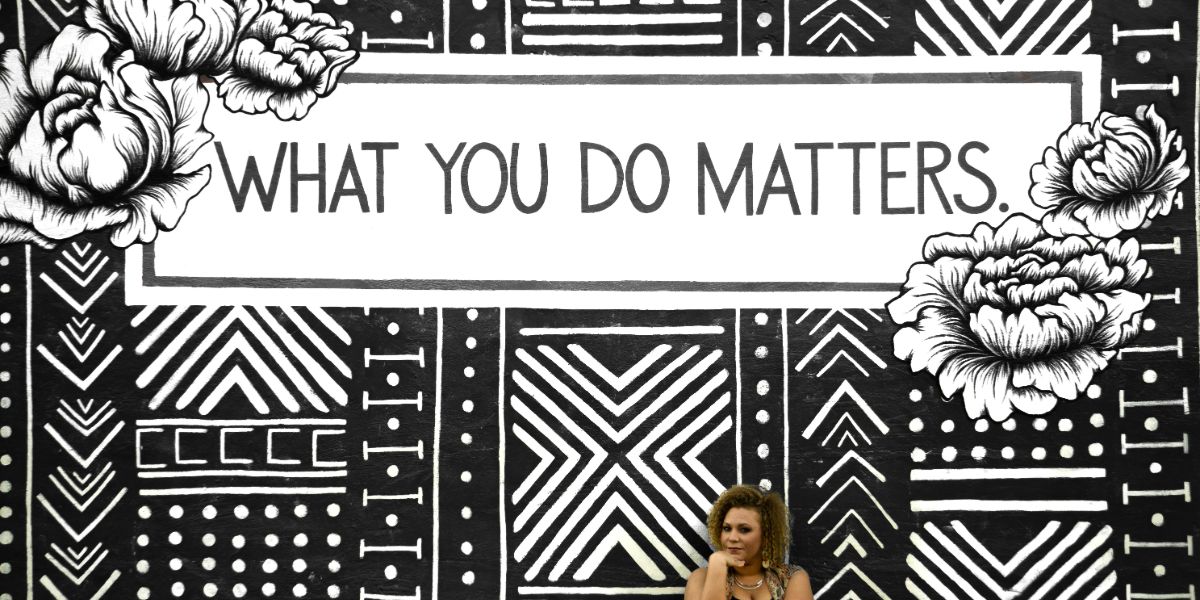What do people typically do in drug rehab?
Most people entering drug rehab participate in a structured daily routine that includes therapy, education, and skill-building activities. Understanding what it is like in rehab can help set realistic expectations for the journey ahead, as programs are designed to address both the physical and psychological aspects of addiction to foster lasting recovery and personal growth.
Clients move through a series of phases, each targeting different elements of recovery. The process begins with a comprehensive evaluation, followed by detoxification and intensive therapy. Along the way, patients learn about addiction, develop healthy habits, and plan for life after rehab, ensuring they are equipped for long-term sobriety.
- Intake and Assessment: Personalized evaluations guide the creation of a tailored treatment plan.
- Detoxification: Medical supervision ensures safe withdrawal from substances.
- Therapy and Counseling: Individual and group sessions address underlying issues and promote healing.
- Psychoeducation: Patients gain knowledge about addiction and relapse prevention.
- Life Skills and Holistic Therapies: Activities like mindfulness and exercise encourage healthy routines.
- Medication-Assisted Treatment: Medications may be used to support recovery and manage symptoms.
- Aftercare Planning: Ongoing support strategies are developed for post-rehab success.
This integrated approach ensures that each person receives the resources and guidance needed for a sustainable recovery process.
How does the intake and assessment process work in drug rehab?
The intake and assessment phase is the gateway to effective treatment, as it allows clinicians to gather in-depth information about a person’s medical, psychological, and social history. During this process, patients are often informed about facility expectations, including phone use policies at Malibu rehab centers, which help set boundaries for communication and support a focused healing environment.
This initial assessment is critical because it shapes the individualized care plan. By evaluating a person’s health, mental state, addiction severity, and personal goals, the rehab team can create a supportive and targeted approach that addresses all aspects of recovery.
- Medical History: Identifies health concerns that may impact treatment or require special attention.
- Mental Health Assessment: Screens for co-occurring disorders to ensure comprehensive care.
- Substance Use Evaluation: Determines patterns and severity of substance use.
- Family and Social Background: Considers relationships and support systems that can influence recovery.
- Personal Goals: Establishes what the individual hopes to achieve during and after rehab.
By thoroughly understanding each person’s unique circumstances, rehab professionals can lay a strong foundation for a successful recovery journey.
What types of therapy and counseling are offered in drug rehab?
Therapy and counseling are at the heart of addiction treatment, providing the tools and support needed for meaningful change. Exploring the differences between luxury rehab versus traditional rehab can reveal how various programs tailor their therapeutic offerings and amenities to meet diverse needs.
While all rehab centers aim to address the root causes of addiction, the range of therapies available can vary. Personalized counseling, group sessions, and family involvement are just a few of the approaches that help individuals build resilience, learn new coping skills, and repair relationships.
1. Individual therapy
Private sessions with a therapist help clients explore personal challenges, trauma, and triggers using evidence-based methods like Cognitive Behavioral Therapy (CBT) and Motivational Interviewing.
2. Group therapy
Group settings foster peer support, reduce isolation, and encourage participants to share experiences and solutions.
3. Family therapy
Involving loved ones in therapy can heal relationships, improve communication, and create a stable home environment.
4. Trauma-informed therapy
This approach helps individuals process and recover from past traumas that may contribute to substance use.
5. Dialectical behavioral therapy (DBT)
DBT teaches strategies for emotional regulation, stress management, and building healthy relationships.
By combining these therapeutic modalities, rehab programs address the complex nature of addiction and help individuals achieve lasting recovery.
What is the role of life skills and holistic therapies in drug rehab?
Life skills training and holistic therapies play a vital role in helping individuals rediscover balance and purpose beyond addiction. For those concerned about insurance coverage for rehab treatments, it’s valuable to know that many comprehensive programs incorporate these supportive therapies to enhance overall well-being.
These activities go beyond traditional counseling by nurturing the mind, body, and spirit. They help participants build practical skills for daily living, foster creative expression, and develop healthy coping mechanisms—key elements for a successful transition back to independent life.
Common life skills and holistic activities
- Life Skills Training: Focuses on essential abilities like budgeting, time management, and effective communication to support independence after rehab.
- Art and Music Therapy: Offers creative outlets for self-expression and emotional healing, making recovery more engaging and meaningful.
- Mindfulness and Meditation: Teaches techniques to manage stress, increase self-awareness, and cultivate inner peace.
- Yoga and Physical Activity: Promotes physical health and emotional stability through movement and exercise.
- Recreational Activities: Encourages the development of new interests and social connections, replacing unhealthy habits with positive experiences.
Integrating these practices into rehab helps individuals build confidence and resilience, supporting a fulfilling, substance-free lifestyle.
How does aftercare and relapse prevention work after drug rehab?
Aftercare and relapse prevention are essential for maintaining sobriety once formal treatment ends. For many, overcoming addiction is an ongoing process that requires ongoing support and proactive strategies to manage real-world challenges.
Effective aftercare includes continued therapy, participation in support groups, and access to sober living environments. Each plan is personalized, addressing triggers and providing tools to navigate stress and temptation, ultimately reducing the risk of relapse.
Key components of aftercare and relapse prevention
- Outpatient Therapy: Continued counseling and support sessions help individuals stay on track after leaving residential care.
- Support Groups: Peer-led meetings, such as 12-step programs, offer encouragement and accountability.
- Sober Living Homes: Provide a safe, drug-free environment during the critical early stages of recovery.
- Relapse Prevention Planning: Identifies triggers and sets up actionable strategies for managing high-risk situations.
- Ongoing Education: Keeps individuals informed about addiction and recovery, empowering them to make healthy choices.
By engaging in these aftercare strategies, individuals strengthen their ability to maintain sobriety and build a rewarding, substance-free future.
What makes Carrara Rehab a leading choice for luxury addiction treatment?
At Carrara Rehab, I provide an ultra-luxury addiction treatment and wellness experience in Malibu, California, designed for those who value privacy, comfort, and exceptional care. My approach is centered on offering a discreet, serene environment with personalized treatment plans that blend evidence-based therapies and holistic wellness. Clients—often high-profile individuals—choose Carrara for the unique combination of state-of-the-art amenities, individualized attention from a high staff-to-patient ratio, and a focus on restoring mind, body, and spirit. Every aspect of the experience is crafted to ensure comfort and discretion, setting Carrara apart from traditional rehab centers.
My clients benefit from private rooms with ensuite bathrooms, gourmet meals prepared by professional chefs, and access to modern fitness facilities and spa services. I incorporate holistic therapies such as yoga, mindfulness, cranial sacral therapy, acupuncture, and reiki into each personalized recovery plan. The emphasis on privacy and confidentiality allows clients to focus on healing without fear of exposure, making Carrara the preferred choice for executives, celebrities, and anyone seeking a transformative recovery journey in a luxurious setting.
- Ultra-luxury amenities: Enjoy private accommodations, fine dining, and exclusive wellness facilities designed for comfort and relaxation.
- Personalized treatment plans: I tailor evidence-based and holistic therapies to each individual’s unique needs, ensuring comprehensive care.
- Discreet, secure environment: My facility prioritizes confidentiality, making it an ideal sanctuary for those requiring privacy during recovery.
How do Carrara’s luxury rehab centers cater to diverse needs and lifestyles?
My luxury rehab centers are thoughtfully located and designed to serve clients with distinct preferences and lifestyles, ensuring that each individual’s recovery journey is as comfortable and effective as possible. Whether you seek the tranquility of the Malibu coast, the privacy of the Hollywood Hills, or the convenience of Los Angeles, I offer a range of exclusive residences, each providing a unique blend of high-end amenities and therapeutic environments. These settings allow my clients to maintain their standards of living while receiving top-tier addiction treatment and holistic wellness support.
Each center—The LA Carrara House, The Hollywood Hills Carrara House, and The Malibu Beach House—offers a sanctuary tailored to your needs. From spa treatments and personal trainers to nutrition counseling and lifestyle coaching, I ensure that every aspect of your well-being is addressed. The diversity in locations and personalized services means you can choose the environment that best fits your lifestyle, all while receiving the same unwavering commitment to privacy, luxury, and comprehensive care.
- The LA Carrara House: Experience luxury and convenience in the heart of Los Angeles, blending urban sophistication with world-class treatment. For more details, explore The LA Carrara House.
- The Hollywood Hills Carrara House: Enjoy the utmost privacy and exclusivity in a serene hillside setting, ideal for those seeking discretion. Learn more about The Hollywood Hills Carrara House.
- The Malibu Beach House: Heal in a peaceful, oceanfront retreat where the sound of the waves complements your recovery journey. Discover The Malibu Beach House.
Ready to experience transformative luxury recovery?
If you are seeking an addiction treatment program that combines the highest standards of privacy, comfort, and personalized care, I invite you to take the next step toward a healthier, more fulfilling life. My exclusive residences and tailored programs ensure that your recovery journey is both effective and luxurious, with every detail designed to support your well-being. Whether you value the urban elegance of Los Angeles, the seclusion of the Hollywood Hills, or the tranquility of Malibu’s coastline, I have a sanctuary that fits your needs. Take the first step and discover how Carrara can help you reclaim your life in an environment that feels like home.
- Personalized attention: Receive dedicated support from a highly qualified team focused on your unique needs.
- Holistic wellness: Benefit from a full spectrum of therapies and amenities designed to nurture your mind, body, and spirit.
- Ultimate discretion: Rest assured that your privacy is protected throughout your recovery experience.
Britney Elyse has over 15 years experience in mental health and addiction treatment. Britney completed her undergraduate work at San Francisco State University and her M.A. in Clinical Psychology at Antioch University. Britney worked in the music industry for several years prior to discovering her calling as a therapist. Britney’s background in music management, gave her first hand experience working with musicians impacted by addiction. Britney specializes in treating trauma using Somatic Experiencing and evidence based practices. Britney’s work begins with forming a strong therapeutic alliance to gain trust and promote change. Britney has given many presentations on somatic therapy in the treatment setting to increase awareness and decrease the stigma of mental health issues. A few years ago, Britney moved into the role of Clinical Director and found her passion in supervising the clinical team. Britney’s unique approach to client care, allows us to access and heal, our most severe cases with compassion and love. Prior to join the Carrara team, Britney was the Clinical Director of a premier luxury treatment facility with 6 residential houses and an outpatient program




